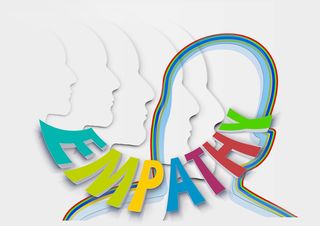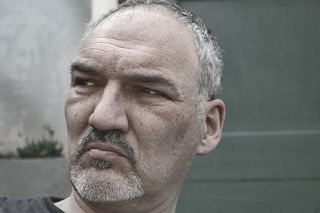 “Each day, we wake slightly altered, and the person we were yesterday is dead,”
“Each day, we wake slightly altered, and the person we were yesterday is dead,” John Updike
wrote,
“so why … be afraid of death, when death comes all the time?” Half a millennium earlier, Montaigne posed the same question somewhat differently in his magnificent meditation on
death and the art of living:
“To lament that we shall not be alive a hundred years hence, is the same folly as to be sorry we were not alive a hundred years ago.”
Yet mortality continues to petrify us —
our own, and perhaps even more so
that of our loved ones. And if the adult consciousness is so thoroughly unsettled by the notion of death, despite intellectually recognizing it as a necessary and inevitable part of life, how is the child consciousness to settle into comprehension and comfort?
Now comes a fine addition to the most intelligent and imaginative
children’s books about making sense of death — the crowning jewel of them all, even, and not only because it bears what might be the most beautiful children’s book title ever conceived:
Cry, Heart, But Never Break (
public library) by beloved Danish children’s book author
Glenn Ringtved and illustrator
Charlotte Pardi, translated into English by Robert Moulthrop.
Although Ringtved is celebrated for his humorous and mischievous stories, this contemplative tale sprang from the depths of his own experience — when his mother was dying and he struggled to explain what was happening to his young children, she offered some words of comfort: “Cry, Heart, but never break.” It was the grandmother’s way of assuring the children that the profound sadness of loss is to be allowed rather than resisted, then folded into the wholeness of life, which continues to unfold. (I’m reminded of Maira Kalman’s unforgettable words:
“When Tibor died, the world came to an end. And the world did not come to an end. That is something you learn.”)

This warmly wistful story begins outside the “small snug house” where four children live with their beloved grandmother. Not wanting to scare the young ones, Death, who has come for the old lady, has left his scythe by the door. Immediately, in this small and enormously thoughtful gesture, we are met with Death’s unexpected tenderness.
Inside, he sits down at the kitchen table, where only the youngest of the kids, little Leah, dares look straight at him.
What makes the book particularly touching, thanks to Pardi’s immensely expressive illustration, is just how crestfallen — broken, even — Death himself looks the entire time he is executing his mission, choked up with some indiscernible fusion of resignation and recompense.
In the quiet, the children could hear their grandmother upstairs, breathing with the same raspy breaths as the figure at the table. They knew Death had come for her and that time was short.
To stall the inevitable, the children devise a plan — believing that Death only works at night, they decide to keep refilling his coffee cup until dawn comes, at which point he would have to leave without their grandmother. Here, too, one is struck by the ordinariness of Death, for what can be more ordinary — and life-loving, even — than to enjoy a cup of coffee at the kitchen table?
But Death eventually curls his bony hand over the cup to signal that the time has come. Leah reaches her own tiny hand, taking his in hers, and beseeches him not to take their darling grandmother. Why, she insists, does grandma have to die?
Some people say Death’s heart is as dead and black as a piece of coal, but that is not true. Beneath his inky cloak, Death’s heart is as red as the most beautiful sunset and beats with a great love of life.
Death is once more overcome with kindness and compassion for the children, so he decides to answer Leah’s question with a story, hoping it would help them understand why dying is natural and necessary.
He tells them of two brothers named Sorrow and Grief, who lived in a somber valley and went about their days “slowly and heavily” because they never looked up, because “they never saw through the shadows on the tops of the hills.”
Beyond those shadows, Death tells the kids, lived two sisters, Joy and Delight.
They were bright and sunny and their days were full of happiness. The only shadow was their sense that something was missing. They didn’t know what, but they felt they couldn’t fully enjoy their happiness.
As Death is telling the story, little Leah nods her head, for she can tell what is to come — the two boys meet the two girls and they fall in love, two perfectly balanced couples: Sorrow and Joy, Grief and Delight.
Death tells the kids:
It is the same with life and death… What would life be worth if there were no death? Who would enjoy the sun if it never rained? Who would yearn for the day if there were no night?
Something difficult and beautiful has sunk in.
When death finally gets up from the table to head upstairs, the youngest boy is moved to stop him — but his older brother puts a rueful hand on his shoulder and gently discourages him.
Moments later, the children heard the upstairs window open. Then, in a voice somewhere between a cry and a whisper, Death said, “Fly, Soul. Fly, fly away.”
They hurry upstairs, where their grandmother has died — a moment of great sadness, enveloped in warm peacefulness.
The curtains were blowing in the gentle morning breeze. Looking at the children, Death said quietly, “Cry, Heart, but never break. Let your tears of grief and sadness help begin new life.”
Then he was gone.
Ever after, whenever the children opened a window, they would think of their grandmother. And when the breeze caressed their faces, they could feel her touch.























